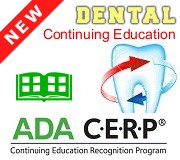Bothered by a toothache? Fearful that the dental drill will hurt more than the toothache, many people choose to hold off on treatment until the bitter end.
In addition, some people still associate a toothache with tooth extraction – and the thought of losing a tooth is just too much to bear.
Fortunately, times are changing, and so are the methods with which your toothache can be treated.
The treatment for a toothache may involve a somewhat invasive dental procedure such as a dental filling, root canal, dental bridge, dental crown or ultimately, a tooth extraction.
But treatment today can be comfortable, and in fact, often helps you avoid tooth extraction.
In addition, today's cosmetic dentistry options, like dental veneers and dental implants, offer alternatives to traditional treatment, and provide a greater esthetic and functional benefit.
Is Your Toothache Indicative of a More Serious Problem?
Because some toothaches signify more serious health issues, you should not ignore them.
For instance, studies have demonstrated that heart attacks may be signaled by the sensation of pain on the left side of the jaw.
Soreness in the jaw and cheekbones or difficulty in chewing may also be the first sign of temporomandibular joint disorder (TMJ), a serious maxilla facial condition.
In addition, sinus infections may produce pain in the upper molar teeth, wrongly leading you to believe that your pain is the result of a dental problem.
It is for these reasons that you should consult your dentist if you have a chronic or extremely painful toothache.
The good news is that dentists now have more advanced methods for identifying the sources of toothache pain, and have developed more comforting and effective solutions to preserve teeth.
Toothache Types and What They May Mean:
There are various toothache types, each of which may signify a different type of oral health problem.
Evaluation and diagnosis by a dental professional can determine the type of toothache you are suffering from, and its source.
Sharp, Intermittent Tooth Sensitivity or Pain: Sensitivity to cold may denote gum recession, enamel loss from over-brushing or aging, wear and tear or a small dental cavity.
Sensitivity to heat may also signify a small cavity, but it could be the result of an abscess, crack or severe decay.
Chronic Toothache: If one or more of your teeth is affected by chronic toothache, nerve damage could be the cause.
Nerve damage may result from teeth grinding, severe tooth decay or trauma to the teeth through injury.
Intense, Throbbing Pain: Intense, throbbing pain, sometimes accompanied by a swollen face, is often a sign of an infection or abscess.
Painful Eating: If it is painful for you to eat, the culprit could be tooth decay, or a slight fracture (crack) in a tooth.
Back-of-the-Jaw Pain: Pain in the back of the jaw may be associated with impacted wisdom teeth (back molars).
But it could also be a sign of TMD or teeth grinding, both of which can cause jaw pain, and pain throughout other facial bone areas.
Toothaches range in severity, particularly in terms of tooth sensitivity and pain levels.
An intermittent toothache may seem little more than an occasional bother, while a chronic toothache may prompt you to take immediate action.










